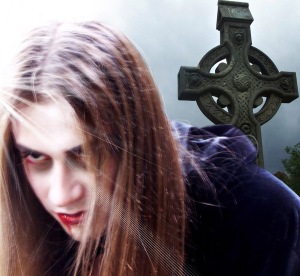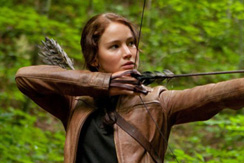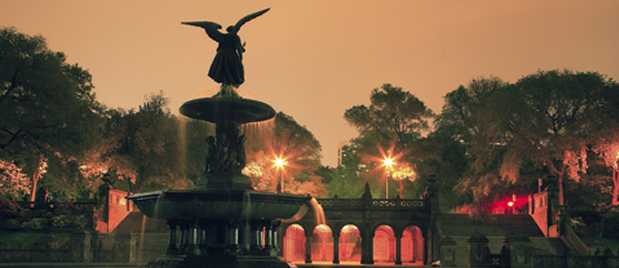Tags
1984, Anne Rice, Blade Runner, Bram Stoker, Buffy the Vampire Slayer, Catching Fire, Divergent, Dracula, Dystopian, Elizabeth Fais, George Orwell, Hero, Horror, Hunger Games, Interview with a Vampire, Joss Whedon, Paranormal, Road Warrior, Stephenie Meyer, supernatural, Suzanne Collins, Tim Kane, Twilight, Under the Never Sky, Vampire, Veronica Rossi, Veronica Roth
 Some things are destined to return: the seasons, fashion trends, and certain types of stories.
Some things are destined to return: the seasons, fashion trends, and certain types of stories.
As a race, we have an inherent need for stories. They come from a deep place in our psyche, and shape our lives.
Science is now able to prove that stories affect our psychological make up. The New York Times article, Your Brain on Fiction, by Annie Murphy Paul, shows how reading fiction affects the way we react in social encounters in real life. The ability to internalize the emotions and actions of fictional characters, actually helps us cope with our own world in a more positive way. [image: morguefile.com]
Reading … enlarges and improves us as human beings. Brain science shows this claim is truer than we imagined.
Joseph Campbell’s interviews with Bill Moyers on The Power of the Myth discussed the universality of stories (myths), and the similarities in the types of stories told from cultures around the world.
Why We Need Certain Stories
You could write an exhaustive doctorate’s thesis on this topic. You’ll be glad to know I’m not. I was thinking about the recent vampire craze, and wondered “why” certain story types keep coming back, each time with a huge social impact.
The following is some of my reasoning, totally unsupported by any research whatsoever. Your comments on the topic are welcome and appreciated!
Paranormal: Vampires
Vampires existed in folklore for centuries, and became world-renowned in the 19th  century. Bram Stoker’s “Dracula” (1897) was one of the first novels in the vampire craze. In recent decades, “Interview with a Vampire” by Anne Rice, “Twilight” by Stephenie Meyer, and Buffy the Vampire Slayer created by Joss Whedon, boosted the vampire pop culture phenomena.
century. Bram Stoker’s “Dracula” (1897) was one of the first novels in the vampire craze. In recent decades, “Interview with a Vampire” by Anne Rice, “Twilight” by Stephenie Meyer, and Buffy the Vampire Slayer created by Joss Whedon, boosted the vampire pop culture phenomena.
Why the mass market fascination with blood sucking immortals? I think immortal is the operative word, with the monster factor playing a close second. [image: morguefile.com]
We are afraid of the unknown, and what happens after death is one of life’s biggest mysteries—one that makes us face our worst fear, extinction. We idolize vampires, because of their beatific immortality. They have been glamorized to such an extent that we overlook the fact that they are blood sucking monsters. In recent fiction, some vampires sparkle in sunlight and are portrayed as humanitarian—the Twilight series, for example.
In truth, vampires are at best monsters who enjoy the glamour of killing. Why do we crave stories about monsters? It’s kind of sick, if you think about it.
Or, maybe not…
I wrote an earlier blog post on this topic, titled Monsters We Love to Hate. To put it simply, we need something horrible onto which we can project our fear of the unknown—a monster that can be destroyed. The ability to vanquish monsters in a story, gives us a sense of control over our fears and conquering the unknown.
For an in-depth study of vampires in pop culture, check out “The Changing Vampire in Film and Television: A Critical Study of the Growth of a Genre” by Tim Kane.
Dystopian
 The dystopian story—post apocalyptic, degenerated society—provides a venue for managing another type of fear. The primal fear of survival.
The dystopian story—post apocalyptic, degenerated society—provides a venue for managing another type of fear. The primal fear of survival.
Survival is the crux of a dystopian story. Surviving under the worst possible conditions.
Dystopian stories are usually characterized by dehumanization (“1984” by George Orwell, and the 1980’s films Road Warrior and Blade Runner), totalitarian governments “(The Hunger Games” by Suzanne Collins, “Divergent” by Veronica Roth), environmental disaster (“Under the Never Sky” by Veronica Rossi), and other characteristics associated with a severe decline in society.
The hero in a dystopian tale give us courage by showing us how to survive at all costs. How they cope with and overcome the hardships in their brutal world, helps us to face and overcome our own battles for survival, both real and imagined. In essence, dystopian stories teach us how to be our own hero. Everyone needs that type of encouragement at one time or another. There’s nothing more empowering than knowing you can save yourself. [image: The Hunger Games (movie)]

I was brought up on Tolkien and C S Lewis, among others – fantasy stories that unquestionably shaped my view of ‘good’ fantasy writing. I think in general stories are a human constant, a universal that we all share; and the themes quite often delve quite deeply into our social and personal psyche. The popularity of vampire stories has always puzzled me. I think you’ve nailed it; I wonder, too, whether it has something to do with inequities of power – so often these stories are portrayed as devices for showing those inequities. It’s interesting.
Both Tolkien and CS Lewis wrote their stories after their combat experiences during WWI. When I learned that, the imagery in The Lord of the Rings series made a lot of sense. In some ways, I thought it was Tolkien’s way of coping with the horrors of war. CS Lewis processed his war-time experiences in story with imagery steeped in his faith. Both works have lasted the test of time, proving they resonate on a deep human level, in conjunction with being well told and expertly written. I’m a big fan of both Tolkien and CS Lewis. Their stories shaped my formative years.
I hadn’t thought about the *power* aspect of the vampire stories. But you’re right. I think that plays a big part in the appeal too. 🙂